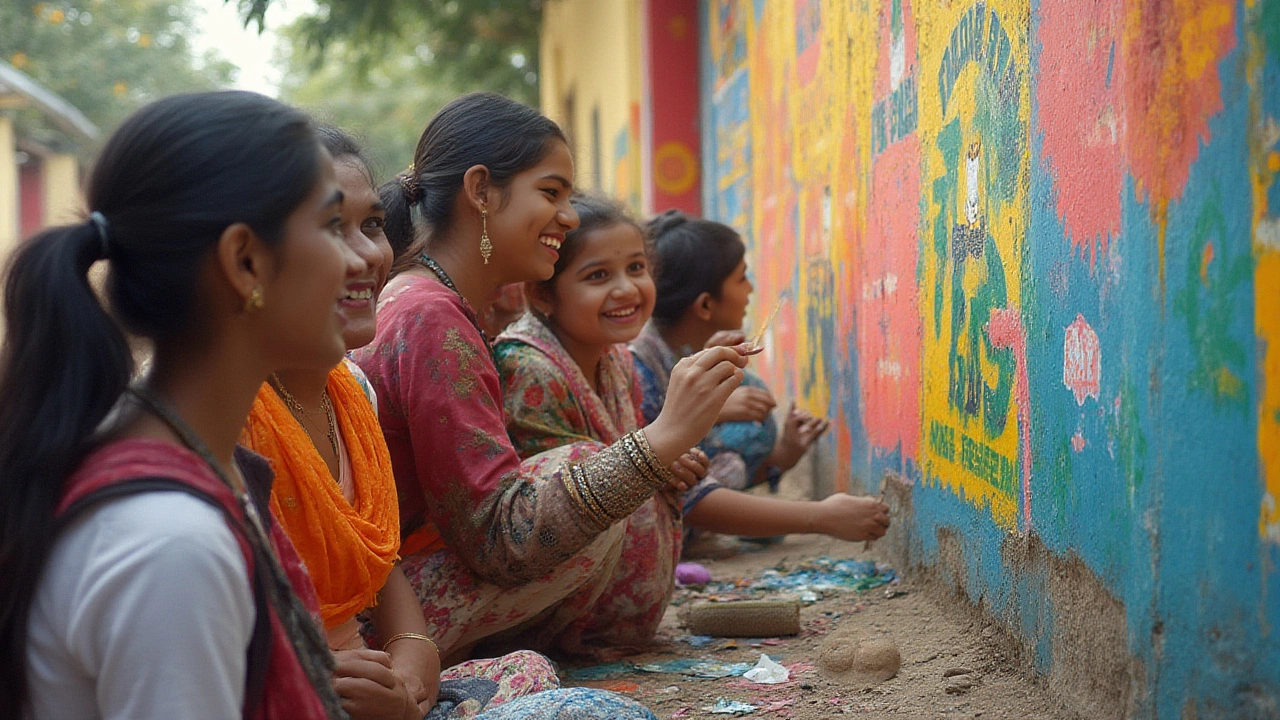Picture this: You step into a community event, and there’s that one person everyone seems drawn to—the one connecting neighbors, untangling problems, and making tough conversations look easy. Some folks call it “just being social,” but dig a bit deeper and you’ll see a whole toolkit of skills in action. Community outreach isn’t simply about showing up; it’s about actively shaping the connections that keep a community strong. If you’ve ever tried to get a group of strangers interested in a local project, you know it’s more than chatting—it’s a blend of listening, problem-solving, motivation, and patience. So yes, community outreach is absolutely a skill. And the more you look at it, the more you realize: it’s a skill set nearly everyone has room to grow.
What is Community Outreach and Why Does it Matter?
Community outreach means bridging the gap between organizations and the public. It’s about connecting resources and information with those who need them—whether it's helping people access food banks, organizing local cleanup days, or running neighborhood nights out. At its heart, it’s about positive impact. In places like Bristol, where I live, outreach groups make a noticeable difference: they help folks find housing, teach English to newcomers, or even launch recycling projects that cut city waste by a third. It’s easy to spot a busy outreach calendar in cities—there’s never a lull in activity, from youth mentoring sessions to pop-up health checks.
But what makes community outreach matter so much? For one thing, it helps patch up gaps in society where public services can’t reach. According to the UK’s Office for National Statistics, more than 65% of households have benefitted from local outreach campaigns in the past three years, whether they know it or not. When done right, outreach builds resilience: It empowers young people, gives the elderly a sense of belonging, and connects families to much-needed services. Neighbourhoods with strong outreach programs report lower crime, higher trust, and even better public health stats. These aren’t just numbers—they translate to safer streets and fuller food pantries.
Most importantly, outreach flips the spotlight onto those whose voices often go unheard. By inviting feedback and really listening, outreach workers make sure nobody slips through the cracks. Ever wondered why some towns bounce back from hardship while others struggle for years? Check out their local outreach groups. You’ll usually find the resilient places have busy volunteer teams, regular community meetings, and lots of open-door projects. Community outreach is the thread that holds the patchwork together, even in tough times.
The Core Skills Behind Successful Community Outreach
Let’s be honest: not everyone is a natural “people person.” That’s totally fine because the skills needed for outreach can be learned—and even the most reserved introverts can grow at it. So, what exactly goes into the community outreach toolkit?
- Communication: Clear, honest conversations build trust. Good outreach workers know how to listen as well as talk. It’s about speaking plainly—no jargon, no fuss.
- Empathy: Before rushing in with solutions, it’s key to hear people’s stories and understand their worries. Empathy fuels respect and collaboration.
- Problem-solving: Sometimes you hit obstacles—lack of funding, language barriers, or rules that confuse everyone. Outreach workers learn to get creative: they partner with local schools, use social media, or bring in translators.
- Organisation: Juggling events, volunteers, and follow-up calls takes a sharp eye for details. Lists, calendars, and reminders aren’t optional—they’re essential.
- Flexibility: Things rarely go to plan. Outreach workers adapt on the fly, pivoting when a venue changes, volunteers cancel, or the weather turns sour.
- Networking: Success depends on relationships. Outreach teams learn who to ask for what—from city councillors to the owner of the local bakery. It’s about connecting the dots.
- Public speaking: Whether leading a workshop or explaining a new neighbourhood scheme, being comfortable in front of a crowd helps get the word out quickly.
Most people think you need all these skills to start. Not true. Plenty of brilliant organizers began by volunteering for a single event, then picked things up as they went. The secret is showing up, asking questions, and being willing to learn. According to a study from Newcastle University, 78% of outreach coordinators said they never imagined taking on big leadership roles when they first joined their groups.

Real-Life Examples of Community Outreach Making a Difference
Stories speak louder than definitions. In Bristol, the Community Navigators project has trained hundreds of volunteers to spot and support lonely seniors. When a coordinator noticed some pensioners missing their Sunday lunch club, her team went door-to-door, found transport for those with mobility issues, and grew attendance by 60% in six months. The real kicker? The volunteers themselves reported feeling more connected and confident, too.
Down in Southville, a youth group facing rising anti-social behavior came up with an idea: instead of extra security, they held skateboarding workshops in the park, funded by a pop-up cake stall. It might sound simple, but police call-outs dropped by nearly half, and local kids started organizing their own events. The key here was creativity—and letting young people shape the solutions. The confidence and leadership skills built through small outreach projects can be life-changing.
Then there’s the Bristol Clean Streets Challenge, where neighborhoods compete to collect the most rubbish each month. Not only did it cut street litter by 35% (based on Bristol City Council’s 2024 data), it sparked friendly rivalries and dozens of new friendships. Outreach isn’t just serious—it can be downright fun.
| Project | Impact | Year |
|---|---|---|
| Community Navigators | +60% in senior club attendance | 2023-24 |
| Southville Skate Workshops | -49% youth-related police call-outs | 2024 |
| Clean Streets Challenge | 35% less rubbish on streets | 2024 |
These aren’t one-off miracles—they’re what happens when enthusiasm meets strategy. Community outreach makes ordinary people into everyday heroes. And trust me, that’s addictive. Once you see your actions make a real difference—even something small—it’s hard to stop.
How to Start Building Your Community Outreach Skills
If you’re keen to build up your own skills, you don’t need a formal degree or a fancy title. Start small, and the rest follows. Here’s a straightforward roadmap:
- Volunteer: Reach out to a local charity, community center, or mutual aid group. Ask what’s needed. Whether it’s helping set up chairs, painting walls, or making phone calls, pitching in gives you inside knowledge—and credibility.
- Learn about your community: Spend time listening. Attend public meetings, go for walks, and make an effort to talk with people you don't usually meet. The better you know your neighbourhood, the easier it is to spot what’s missing.
- Practice active listening: This means paying attention, asking thoughtful questions, and resisting the urge to “fix” things straight away. People open up when they feel heard.
- Build relationships: Say thank you, remember names, follow up, and cheer on others’ successes. Trust takes time, and small gestures matter.
- Try leading an event: Once you feel confident, organize a get-together—a community clean-up, a games night, or a skills swap. Don’t sweat mistakes. The best outreach leaders are the ones who laugh things off and keep going.
- Reflect and adapt: Take stock after each project. What worked? What could have gone smoother? Talk with your team and the community for honest feedback.
Tip: Networking isn’t just for office types. Meeting people in coffee shops, parks, or school gates is where the magic happens. And don’t write off digital outreach—posting updates in local Facebook groups or WhatsApp chats can draw out folks who are too shy to show up in person.
If you want a nudge, consider shadowing someone experienced. Most established community groups, like Feeding Bristol or The ARC Project, are happy to let newcomers tag along. Supporting someone else’s leadership is as valuable as leading yourself. It’s all about teamwork.

Making the Most of Community Outreach—Why It’s More Than a Skill
Here’s the twist: while community outreach absolutely is a skill, it’s also a mindset. It means committing to openness, making space for all voices, and rolling with disappointment. Maybe an event turns out smaller than you hoped. Maybe folks are suspicious at first. That happens. Persistence is your secret weapon.
Seasoned outreach workers will tell you—no two days look the same. Sometimes you spend hours making calls, other days you’re sweeping up after a fun run or writing up newsletters. The work flexes with community needs. Picking up new skills is part of the job: one week you learn about event planning, the next week it's learning phrases in Somali or brushing up on local council rules.
But here’s the thing: people remember the impact, not the job title. According to Locality UK’s 2025 survey, 81% of respondents said they trusted information more from a *community outreach* worker than from formal adverts or politicians. There’s authenticity to grassroots efforts that can’t be faked. And that’s why skills learned through outreach—empathy, conflict resolution, creative thinking—are so valuable. They travel with you, whatever path you take next.
So next time you wonder if community outreach counts as a real skill, think about the people you admire—the ones who rally neighbors when there’s a flood, who say hello to all the shoppers, who remembered your birthday when you felt invisible. Their skills aren’t flashy, but they change lives. That’s what makes outreach worth learning, practicing, and sharing.
